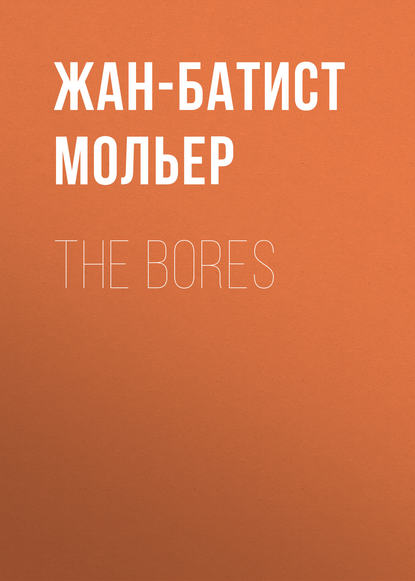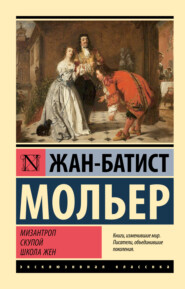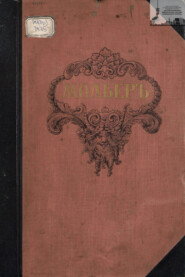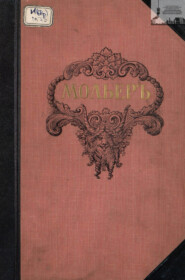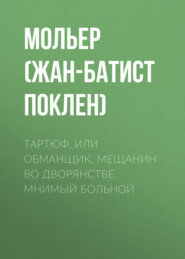По всем вопросам обращайтесь на: info@litportal.ru
(©) 2003-2024.
✖
The Bores
Год написания книги
2017
Настройки чтения
Размер шрифта
Высота строк
Поля
LA M. What! do you still doubt a love that has been tried?
ER. Ah, it is with difficulty that a heart that truly loves has complete confidence in such a matter. It fears to flatter itself; and, amidst its various cares, what it most wishes is what it least believes. But let us endeavour to discover the delightful creature.
LA M. Sir, your necktie is loosened in front.
ER. No matter.
LA M. Let me adjust it, if you please.
ER. Ugh, you are choking me, blockhead; let it be as it is.
LA M. Let me just comb…
ER. Was there ever such stupidity! You have almost taken off my ear with a tooth of the comb.
[Footnote: The servants had always a comb about them to arrange the wigs of their masters, whilst the latter thought it fashionable to comb and arrange their hair in public (see The Pretentious Young Ladies).]
LA M. Your rolls…
ER. Leave them; you are too particular.
LA M. They are quite rumpled.
ER. I wish them to be so.
LA M. At least allow me, as a special favour, to brush your hat, which is covered with dust.
ER. Brush, then, since it must be so.
LA M. Will you wear it like that?
ER. Good Heavens, make haste!
LA M. It would be a shame.
ER. (After waiting). That is enough.
LA M. Have a little patience.
ER. He will be the death of me!
LA M. Where could you get all this dirt?
ER. Do you intend to keep that hat forever?
LA M. It is finished.
ER. Give it me, then.
LA M. (Letting the hat fall). Ah!
ER. There it is on the ground. I am not much the better for all your brushing! Plague take you!
LA M. Let me give it a couple of rubs to take off…
ER. You shall not. The deuce take every servant who dogs your heels, who wearies his master, and does nothing but annoy him by wanting to set himself up as indispensable!
SCENE II. – ORPHISE, ALCIDOR, ÉRASTE, LA MONTAGNE
(Orphise passes at the foot of the stage; Alcidor holds her hand.)
ER. But do I not see Orphise? Yes, it is she who comes. Whither goeth she so fast, and what man is that who holds her hand? (He bows to her as she passes, and she turns her head another way).
SCENE III. – ÉRASTE, LA MONTAGNE
ER. What! She sees me here before her, and she passes by, pretending not to know me! What can I think? What do you say? Speak if you will.
LA M. Sir, I say nothing, lest I bore you.
ER. And so indeed you do, if you say nothing to me whilst I suffer such a cruel martyrdom. Give me some answer; I am quite dejected. What am I to think? Say, what do you think of it? Tell me your opinion.
LA M. Sir, I desire to hold my tongue, and not to set up for being indispensable.
ER. Hang the impertinent fellow! Go and follow them; see what becomes of them, and do not quit them.
LA M. (Returning). Shall I follow at a distance?
ER. Yes.
LA M. (Returning). Without their seeing me, or letting it appear that I was sent after them?
ER. No, you will do much better to let them know that you follow them by my express orders.
LA M. (Returning). Shall I find you here?
ER. Plague take you. I declare you are the biggest bore in the world!
SCENE IV. – ÉRASTE, alone
Ah, how anxious I feel; how I wish I had missed this fatal appointment! I thought I should find everything favourable; and, instead of that, my heart is tortured.
SCENE V. – LISANDRE, ÉRASTE
LIS. I recognized you under these trees from a distance, dear Marquis; and I came to you at once. As one of my friends, I must sing you a certain air which I have made for a little Couranto, which pleases all the connoisseurs at court, and to which more than a score have already written words.
[Footnote: See Vol. I., page 164, note 14.]
I have wealth, birth, a tolerable employment, and am of some consequence in France; but I would not have failed, for all I am worth, to compose this air which I am going to let you hear. (He tries his voice). La, la; hum, hum; listen attentively, I beg. (he sings an air of a Couranto). Is it not fine?
ER. Ah, it is with difficulty that a heart that truly loves has complete confidence in such a matter. It fears to flatter itself; and, amidst its various cares, what it most wishes is what it least believes. But let us endeavour to discover the delightful creature.
LA M. Sir, your necktie is loosened in front.
ER. No matter.
LA M. Let me adjust it, if you please.
ER. Ugh, you are choking me, blockhead; let it be as it is.
LA M. Let me just comb…
ER. Was there ever such stupidity! You have almost taken off my ear with a tooth of the comb.
[Footnote: The servants had always a comb about them to arrange the wigs of their masters, whilst the latter thought it fashionable to comb and arrange their hair in public (see The Pretentious Young Ladies).]
LA M. Your rolls…
ER. Leave them; you are too particular.
LA M. They are quite rumpled.
ER. I wish them to be so.
LA M. At least allow me, as a special favour, to brush your hat, which is covered with dust.
ER. Brush, then, since it must be so.
LA M. Will you wear it like that?
ER. Good Heavens, make haste!
LA M. It would be a shame.
ER. (After waiting). That is enough.
LA M. Have a little patience.
ER. He will be the death of me!
LA M. Where could you get all this dirt?
ER. Do you intend to keep that hat forever?
LA M. It is finished.
ER. Give it me, then.
LA M. (Letting the hat fall). Ah!
ER. There it is on the ground. I am not much the better for all your brushing! Plague take you!
LA M. Let me give it a couple of rubs to take off…
ER. You shall not. The deuce take every servant who dogs your heels, who wearies his master, and does nothing but annoy him by wanting to set himself up as indispensable!
SCENE II. – ORPHISE, ALCIDOR, ÉRASTE, LA MONTAGNE
(Orphise passes at the foot of the stage; Alcidor holds her hand.)
ER. But do I not see Orphise? Yes, it is she who comes. Whither goeth she so fast, and what man is that who holds her hand? (He bows to her as she passes, and she turns her head another way).
SCENE III. – ÉRASTE, LA MONTAGNE
ER. What! She sees me here before her, and she passes by, pretending not to know me! What can I think? What do you say? Speak if you will.
LA M. Sir, I say nothing, lest I bore you.
ER. And so indeed you do, if you say nothing to me whilst I suffer such a cruel martyrdom. Give me some answer; I am quite dejected. What am I to think? Say, what do you think of it? Tell me your opinion.
LA M. Sir, I desire to hold my tongue, and not to set up for being indispensable.
ER. Hang the impertinent fellow! Go and follow them; see what becomes of them, and do not quit them.
LA M. (Returning). Shall I follow at a distance?
ER. Yes.
LA M. (Returning). Without their seeing me, or letting it appear that I was sent after them?
ER. No, you will do much better to let them know that you follow them by my express orders.
LA M. (Returning). Shall I find you here?
ER. Plague take you. I declare you are the biggest bore in the world!
SCENE IV. – ÉRASTE, alone
Ah, how anxious I feel; how I wish I had missed this fatal appointment! I thought I should find everything favourable; and, instead of that, my heart is tortured.
SCENE V. – LISANDRE, ÉRASTE
LIS. I recognized you under these trees from a distance, dear Marquis; and I came to you at once. As one of my friends, I must sing you a certain air which I have made for a little Couranto, which pleases all the connoisseurs at court, and to which more than a score have already written words.
[Footnote: See Vol. I., page 164, note 14.]
I have wealth, birth, a tolerable employment, and am of some consequence in France; but I would not have failed, for all I am worth, to compose this air which I am going to let you hear. (He tries his voice). La, la; hum, hum; listen attentively, I beg. (he sings an air of a Couranto). Is it not fine?





